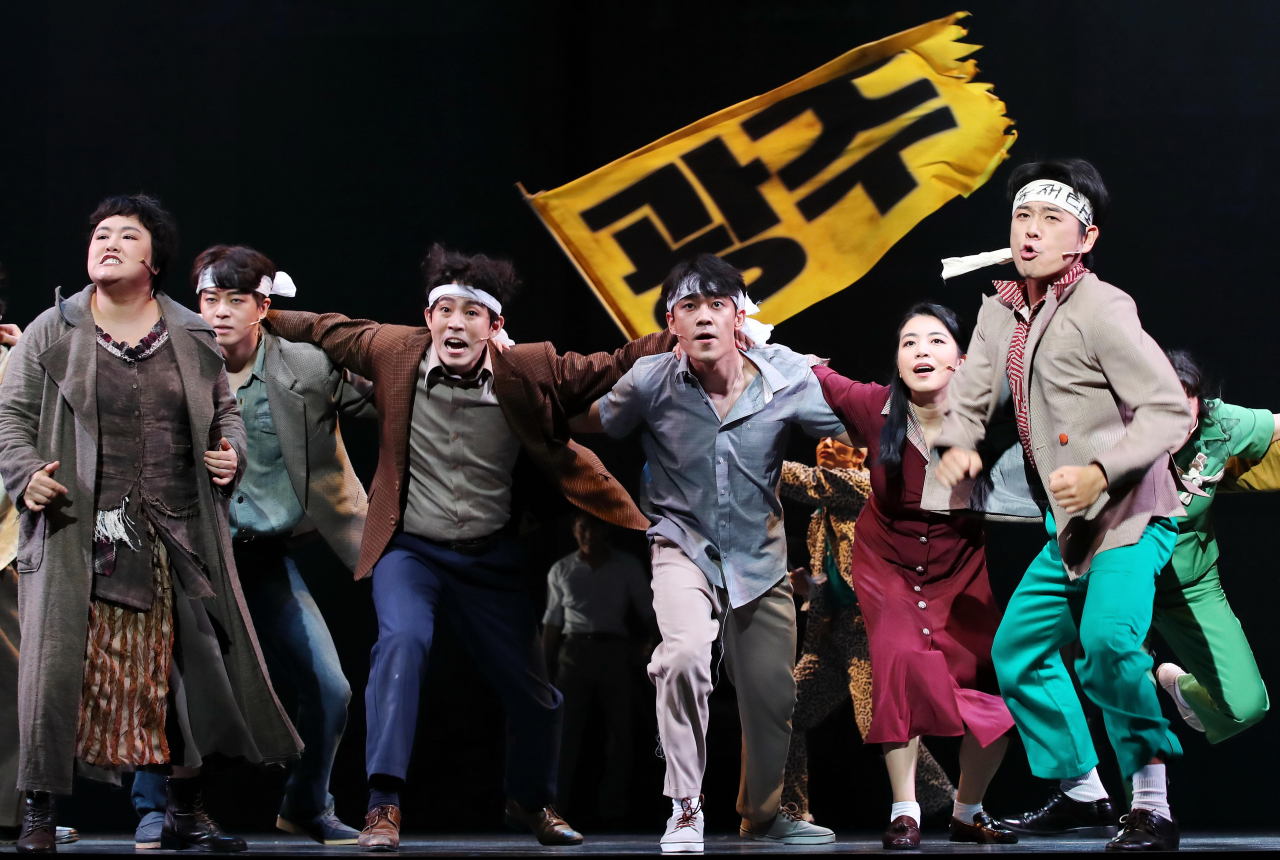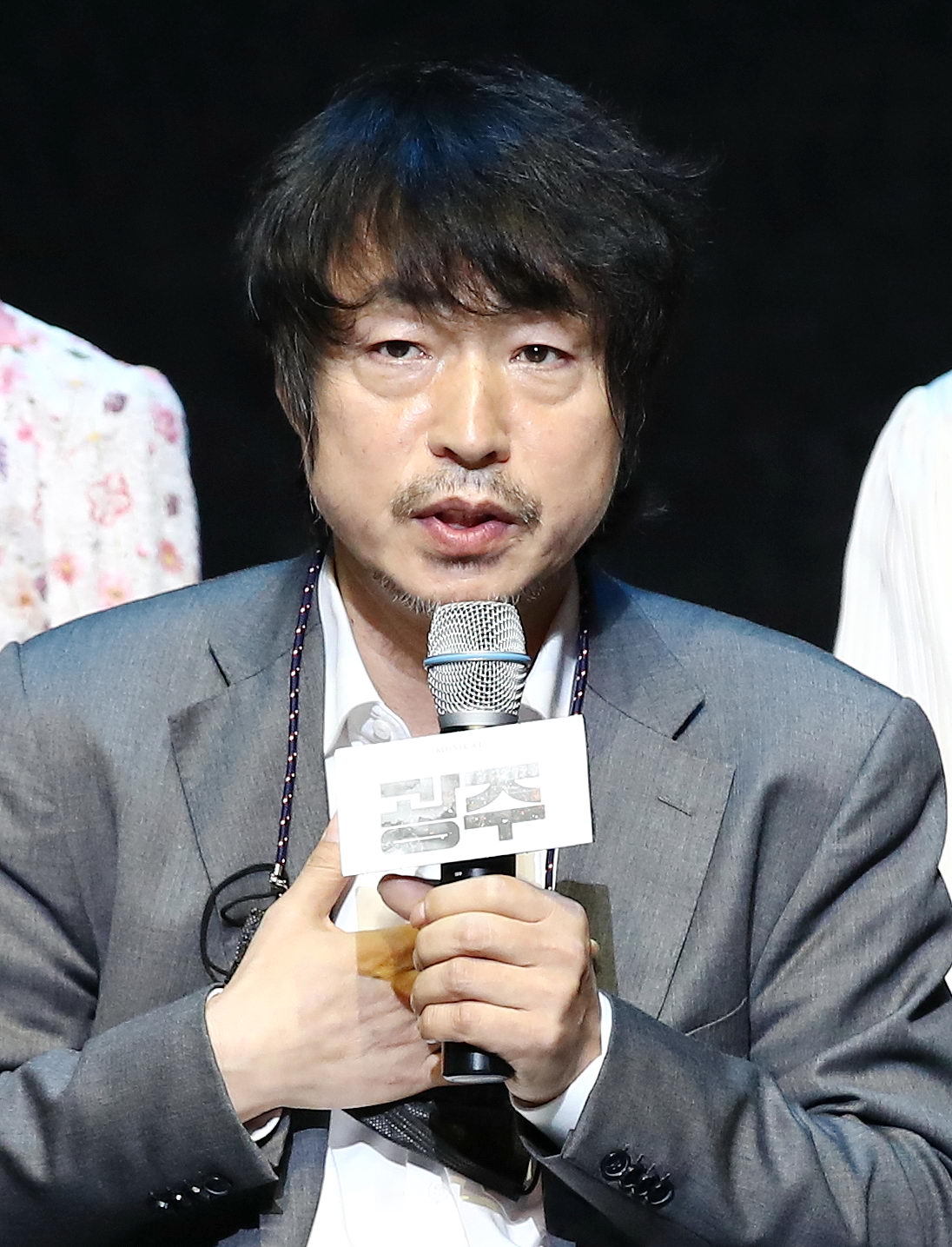Gwangju, the 'City of Light'
Original musical by Koh Sun-woong pays tribute to Gwangju Democratic Uprising
By Im Eun-byelPublished : Oct. 17, 2020 - 16:01

Though 40 years have passed, memories of 1980 still cast a shadow over the city of Gwangju.
This year, those memories have been woven into a story and put onstage in a new original musical: “City of Light,” produced by the Ministry of Culture, Sports and Tourism and Gwangju Metropolitan City.
The May 18 Gwangju Democratic Uprising, which marked its 40th anniversary this year, took place in the metropolitan city surrounded by South Jeolla Province. Hundreds of pro-democracy protesters lost their lives as they clashed with troops dispatched by Gen. Chun Doo-hwan, who, the following January, would take office as president.
The musical, which began its run Friday, tells the story through the eyes of a character named Park Han-su. Park is a member of the military who is sent to Gwangju to suppress the uprising. Instead of directly fighting the protesters, he is ordered to spy on them and encourage them to take violent actions so that the military will have an excuse to suppress them. However, seeing the goodwill and the kindness of the people of Gwangju, he decides to help them instead.
This year, those memories have been woven into a story and put onstage in a new original musical: “City of Light,” produced by the Ministry of Culture, Sports and Tourism and Gwangju Metropolitan City.
The May 18 Gwangju Democratic Uprising, which marked its 40th anniversary this year, took place in the metropolitan city surrounded by South Jeolla Province. Hundreds of pro-democracy protesters lost their lives as they clashed with troops dispatched by Gen. Chun Doo-hwan, who, the following January, would take office as president.
The musical, which began its run Friday, tells the story through the eyes of a character named Park Han-su. Park is a member of the military who is sent to Gwangju to suppress the uprising. Instead of directly fighting the protesters, he is ordered to spy on them and encourage them to take violent actions so that the military will have an excuse to suppress them. However, seeing the goodwill and the kindness of the people of Gwangju, he decides to help them instead.

“For the past 40 years, I have watched numerous documentaries and films about Gwangju. The story has been told many times,” director Koh Sun-woong said Tuesday at a press event in central Seoul. “Most stories depict the story from the victim’s point of view. This time, I went for the perpetrator’s perspective.”
Koh, 53, is a celebrated figure in the South Korean theater scene. He heads his own theater troupe, Mabangjin, and has written and directed numerous plays, musicals and operas as well as the opening and closing ceremonies of the 2018 PyeongChang Paralympics.
Koh hoped to show the story from a fresh perspective, he said, explaining that Park stands on the line between victim and assailant.
“Actors who play the characters in the military in dramas about Gwangju Uprising often become traumatized. They are always crying backstage before and after their scenes. Seeing them, I realized the impact of the stage performance,” Koh said.
The musical is titled “Gwangju” in Korean, and the English title refers to the meaning behind the city’s name.
Composer Choi U-zong wrote the scores for the original Korean-language musical. Along with original orchestral music, he also integrated popular music of the time into the musical numbers.
“March for the Beloved” is a song written in 1982 for those who died during the 1980 uprising and has come to symbolize Korea’s democratization movement. The musical takes the melody of the iconic song and turns it into a musical number, giving the song further depth.
“When I read the script, I thought that this is more of a collection of images in someone’s memories, rather than a scenario. Music should contribute to recalling those memories,” Choi said.
Stage actor Min Woo-hyuk and singers Tei and Seo Eun-kwang of K-pop boy band BtoB play the role of Park Han-su. The musical “City of Light” runs at the Hongik Daehangno Art Center in central Seoul until Nov. 8. Tickets are priced from 33,000 won to 110,000 won.
By Im Eun-byel (silverstar@heraldcorp.com)
Koh, 53, is a celebrated figure in the South Korean theater scene. He heads his own theater troupe, Mabangjin, and has written and directed numerous plays, musicals and operas as well as the opening and closing ceremonies of the 2018 PyeongChang Paralympics.
Koh hoped to show the story from a fresh perspective, he said, explaining that Park stands on the line between victim and assailant.
“Actors who play the characters in the military in dramas about Gwangju Uprising often become traumatized. They are always crying backstage before and after their scenes. Seeing them, I realized the impact of the stage performance,” Koh said.
The musical is titled “Gwangju” in Korean, and the English title refers to the meaning behind the city’s name.
Composer Choi U-zong wrote the scores for the original Korean-language musical. Along with original orchestral music, he also integrated popular music of the time into the musical numbers.
“March for the Beloved” is a song written in 1982 for those who died during the 1980 uprising and has come to symbolize Korea’s democratization movement. The musical takes the melody of the iconic song and turns it into a musical number, giving the song further depth.
“When I read the script, I thought that this is more of a collection of images in someone’s memories, rather than a scenario. Music should contribute to recalling those memories,” Choi said.
Stage actor Min Woo-hyuk and singers Tei and Seo Eun-kwang of K-pop boy band BtoB play the role of Park Han-su. The musical “City of Light” runs at the Hongik Daehangno Art Center in central Seoul until Nov. 8. Tickets are priced from 33,000 won to 110,000 won.
By Im Eun-byel (silverstar@heraldcorp.com)








![[KH Explains] How should Korea adjust its trade defenses against Chinese EVs?](http://res.heraldm.com/phpwas/restmb_idxmake.php?idx=644&simg=/content/image/2024/04/15/20240415050562_0.jpg&u=20240415144419)











![[Today’s K-pop] Stray Kids to return soon: report](http://res.heraldm.com/phpwas/restmb_idxmake.php?idx=642&simg=/content/image/2024/04/16/20240416050713_0.jpg&u=)